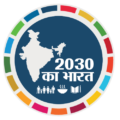In the pursuit of global progress and prosperity, the Sustainable Development Goals for the year 2030 (SDG 2030) stand as a beacon of hope and transformation. These goals, often referred to as the Agenda 2030, encapsulate a comprehensive plan to address some of the world’s most pressing challenges. With the hashtag #2030kabharat gaining momentum, it’s clear that people worldwide are rallying behind these ambitious objectives. In this article, we delve into the intricacies of the SDG 2030, exploring their significance, implementation, and impact on a global scale.
Understanding the Significance of SDG 2030
The Sustainable Development Goals 2030 are a set of 17 interconnected objectives adopted by 193 United Nations member states in 2015. These goals provide a blueprint for a more equitable, sustainable, and prosperous world by 2030. They encompass a wide range of critical issues, including poverty eradication, quality education, gender equality, clean water and sanitation, and climate action, among others.
SDG 2030 No Poverty
One of the most fundamental aspirations of the SDG 2030 is the eradication of poverty in all its forms. This goal seeks to ensure that by 2030, no one lives in extreme poverty, and all individuals have equal access to basic resources and opportunities. It emphasizes the importance of economic growth that benefits everyone, leaving no one behind.
SDG 2030 Quality Education
Quality education is a cornerstone of sustainable development. Goal 4 aims to ensure inclusive and equitable quality education for all by 2030. This includes providing access to affordable and quality early childhood development, primary, secondary, and tertiary education. Education empowers individuals, fosters innovation, and promotes lifelong learning.
SDG 2030 Gender Equality
Gender equality is not only a fundamental human right but also a necessary foundation for a peaceful, prosperous, and sustainable world. SDG 5 seeks to achieve gender equality and empower all women and girls. This goal recognizes that gender disparities exist in various aspects of life, and it strives to eliminate them by 2030.
SDG 2030 Clean Water and Sanitation
Access to clean water and sanitation is a basic human right. Goal 6 aims to ensure the availability and sustainable management of water and sanitation for all. By 2030, the objective is to achieve universal and equitable access to safe and affordable drinking water, sanitation facilities, and hygiene.
SDG 2030 Climate Action
In the face of the growing climate crisis, Goal 13 takes centre stage. It calls for urgent action to combat climate change and its impacts. By 2030, countries are expected to strengthen resilience and adaptive capacity to climate-related hazards and integrate climate change measures into their policies and planning.
The Implementation Challenge
While the Sustainable Development Goals 2030 are undoubtedly ambitious and noble, their successful implementation poses a formidable challenge. Achieving these goals requires a collaborative effort on a global scale. Governments, civil society organizations, the private sector, and individuals all have roles to play.
National and International Partnerships
To make tangible progress towards the SDG 2030, countries must form strong partnerships at both national and international levels. Collaboration among governments, NGOs, businesses, and communities is essential to pool resources, share knowledge, and work toward common objectives.
Innovative Solutions
Innovation is a key driver of progress. Finding innovative solutions to complex challenges is crucial in achieving the Sustainable Development Goals. This includes leveraging technology, investing in research and development, and promoting entrepreneurship that aligns with sustainable objectives.
Education and Awareness
Raising awareness and educating people about the SDG Goals is paramount. Communities, schools, and universities can play a pivotal role in fostering a sense of responsibility and encouraging sustainable practices. Knowledge empowers individuals to take meaningful action.
Tracking Progress
Regular monitoring and reporting on progress are essential to ensure that efforts are on track to meet the 2030 targets. Metrics, data collection, and transparent reporting mechanisms help identify gaps and areas that require intensified efforts.
The Global Impact of SDG 2030
The significance of the Sustainable Development Goals extends far beyond individual countries or regions. Their successful achievement has the potential to reshape the world in profound ways.
SDG 2030 Economic Growth and Poverty Reduction
Eradicating poverty and promoting inclusive economic growth are central to the SDG 2030. When people have access to opportunities, education, and healthcare, societies thrive, leading to increased economic stability and reduced inequality.
SDG 2030 Health and Well-being
Several of the Sustainable Development Goals are dedicated to improving global health and well-being. Access to quality healthcare, clean water, and nutritious food not only enhances individual lives but also contributes to healthier, more resilient communities.
SDG 2030 Environmental Sustainability
Goal 13, which addresses climate action, is crucial for the preservation of our planet. By mitigating climate change and protecting ecosystems, the SDG 2030 safeguards the environment for future generations.
SDG 2030 Gender Equality and Empowerment
Achieving gender equality benefits everyone. When women and girls have equal access to education, healthcare, and economic opportunities, societies become more equitable and prosperous.
Conclusion
The Sustainable Development Goals 2030, encapsulated in the Agenda 2030, represent humanity’s commitment to building a better future. These goals, from eradicating poverty to combating climate change, are interconnected and essential for the well-being of people and the planet. By working together, fostering innovation, and staying committed to these objectives, we can pave the way for a more sustainable and equitable world by 2030.
With the hashtag #2030kabharat gaining momentum, it’s clear that people worldwide are rallying behind these ambitious objectives. The journey towards 2030 may be challenging, but it is a path worth pursuing. Let us all be active participants in this global mission for a brighter, more sustainable future.
